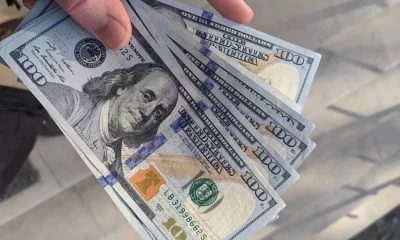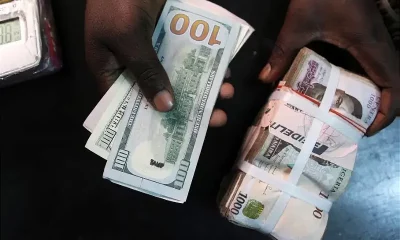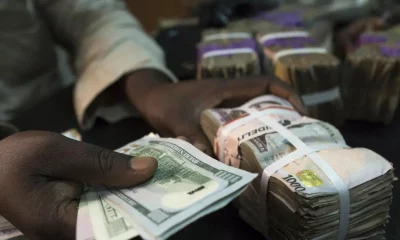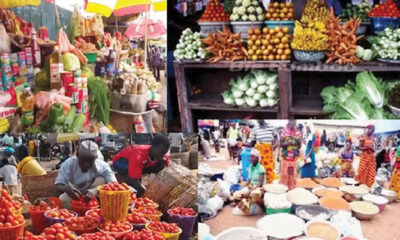News
NNPCL Not Transparent On Subsidy, Dollar Revenues – World Bank
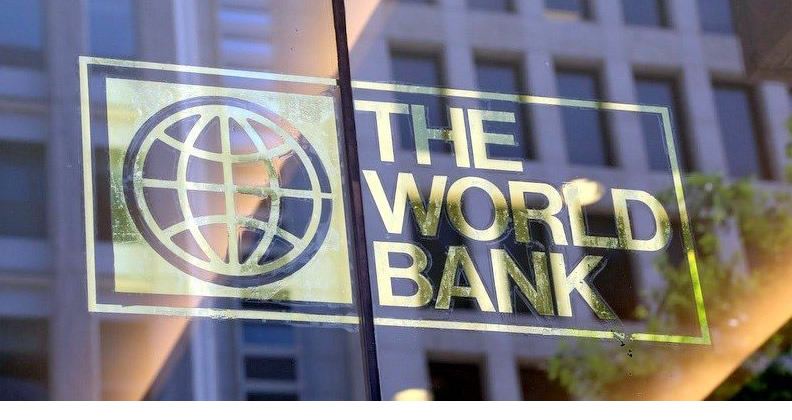
The Nigeria National Petroleum Corporation Limited is not transparent about the financial gains from fuel subsidy removal, the World Bank has disclosed.
This extends to subsidy arrears that are still being deducted and the impact of subsidy removal on federation revenues, the bank noted. The Washington-based made this call in its Nigeria Development Update, December 2023 edition titled, ‘Turning The Corner (from reforms and renewed hope, to results).
This is the Minister of Finance and Coordinating Minister of Economy, Wale Edun, revealed that the government was ready to scrutinise the revenue flow from the NNPCL.
According to the World Bank, while revenue gains from the exchange rate reforms are visible, more clarity is needed on oil revenues, including the fiscal benefits from the PMS subsidy reforms.
It declared, “nominal oil revenue gains have been evident since June; these are mostly categorised as “exchange rate gains”, suggesting that they are due to the naira depreciation.
“Except for the exchange rate-related increases, however, there is a lack of transparency regarding oil revenues, especially the financial gains of the Nigeria National Petroleum Corporation from the subsidy removal, the subsidy arrears that are still being deducted, and the impact of this on Federation revenues. It is also unclear why retail petrol prices have not changed much since August, despite fluctuations in the exchange rate and global oil prices.”
The Bretton Woods institution further expanded that gains in net oil revenue of the federation were lower than what they should have been considering what the removal of fuel subsidy should have added to the accounts.
It stated that fuel subsidy cost the federation about N380bn a month, and once removed, the federation account should have recorded an increase in net oil revenues.
It said, “However, most of the gains in the oil revenues in H2 2023, as reported by OAGF, can be attributed to exchange rate gains. Without exchange rate gains, net oil revenue between January and August would have declined by 0.2 of a percentage point of full-year GDP yoy, all materialising in the July–August period.
“In August, additional revenue from 40 per cent profit of Production Sharing Contracts and the interim yearly dividend were reflected in the accounts. However, these were not as high as what the gains from removing the gasoline subsidy should have been. Given that petrol pump prices have not changed in line with market fundamentals (notably exchange rate movements and global oil prices), there is a risk that the implicit fuel subsidy has reemerged, potentially keeping net oil revenues lower than expected.”
The institution further noted that the reform of fuel subsidy should help the NNPCL to settle its arrears and start paying fully for the Federation’s share of costs in joint venture operations, thereby allowing oil production to gradually increase over time.
Also speaking at the presentation of the report, the Coordinating Minister of the Economy, Edun noted that the removal of fuel subsidy saved the government’s finances.
He stated that while expectations that subsidy removal should boost the government’s revenue, it was faced with debt funding and a high fiscal deficit.
He said, “In terms of the government’s finances, you have rightly pointed out that following the removal of subsidy, there is an expectation that there would be fiscal dividends and it’s fair to say that without it, government finances will be in total disarray now. However, there is debt funding, pressure on fiscal deficit, and on government finances, and borrowings which have been inherited.
“Our levels of borrowing are being reduced and there is a plan to reduce that fiscal deficit over time. On the revenue side, the first source is oil, and I expect that there will be serious scrutiny on oil revenue and production and insistence on raising oil production and similarly that the revenues are brought into the federation account following the constitution. I think there will be added scrutiny, and I am sure NNPC is getting ready for that.”
Edun further declared that there would be a robust rollout of measures to raise tax revenue soon. He, however, highlighted that tax rates would not be increased but a lot would be done regarding efficiency, digitalisation, and improved collection.
He added that waivers and tax incentives would be scrutinised to revamp it and save leakages, particularly among ministries, departments and agencies.
Subsidy removal and controversies
On May 29, President Bola Tinubu announced the removal of fuel subsidy with, “Subsidy is gone,” to free up foreign exchange earnings.
In his August 1 national address, Tinubu disclosed that the Federal Government had saved about N1tn in two months after the removal of the petrol subsidy freeing up funds for other things in the economy.
He said, “In a little over two months, we have saved over a N1tn that would have been squandered on the unproductive fuel subsidy which only benefitted smugglers and fraudsters.”
According to him, the funds saved from subsidy removal “will now be used more directly and more beneficially for you and your families.”
However, there have been concerns that the dividend of subsidy removal has not trickled down to the average Nigerian.
Recently, a former Governor of the Central Bank of Nigeria, Sanusi Lamido Sanusi, alleged that the NNPCL might not be remitting enough dollars to the federation account despite subsidy’s removal.
Speaking during the Bank Directors Summit organised by the Bank Directors Association of Nigeria recently, Sanusi, said, “The exchange rate needs to be stabilised and we have to address the fundamental question, why is there no money coming in?
“Why is the NNPCL not able to bring in dollars? Am sorry this is the question that cost me my job and I will continue asking this question until NNPCL fixes it up or until I die. Where are the dollars? We need to shine a light on the NNPCL. The finance minister cannot tell you because he doesn’t have a monitoring system that reports to him.
“The finance minister can’t tell you how many barrels of petrol we produce and export. It is only the NNPCL that can give those figures. The finance ministry needs to know how much oil we produce daily, how much we sell, and where the money is going. We are no longer paying subsidies so where are the dollars? It was under recovery during the subsidy era and that has been stopped, so where is the money?”
Sanusi noted that the NNPCL was opaque about its dealings, shrouding many of its dealings in secrecy.
NNPCL dollar revenues
Defending the oil company’s finances, the NNPCL’s Chief Financial Officer, Umar Ajiya, who was representing the Group Managing Director, Mele Kyari, disclosed that since the inflow of dollars into the country is tied to oil revenues, the country is facing the consequence of falling oil production, insecurity, and lack of investments in the sector.
He also said the NNPCL had been using its revenue to import refined PMS and service debt. He said, “Just to clarify and let the audience go with a well-balanced information. The inflows of dollars into the country are tied to oil revenues and the oil revenues are driven from oil production.
“The consequence of what we are facing today is a fall in oil production simply because of insecurity and lack of investments. The net dollar accruable from oil operations is what the NNPCL uses to import PMS. The PMS is sold in naira, you can’t sell it in dollars. Consequently, you would find out that the net dollar inflows into the NNPCL coffers are spent on the import of basically PMS and debt service.”
Ajiya stressed that the surplus dollars inflow to the CBN and any other bank in the country can only happen when the country starts producing PMS over its domestic requirement.
According to the CFO, adequate forex inflow can also happen if insecurity is addressed, and such development will attract partners to bring in fresh dollars in the form of investment to oil operations.
He added, “So until such a point where we have excess production over and above what we consume, then we will begin to see much dollar liquidity coming into this country. The whole consumption pattern of most Nigerians is foreign import-dependent and until we come to a position whereby, we begin to consume what we produce and also add value to our raw materials to bring further FX into the country.”
News
Senate approves death penalty for drug traffickers
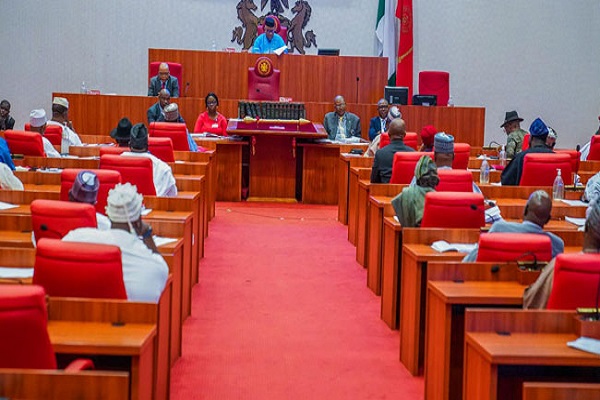
Senate on Thursday, May 9, approved the death penalty for those convicted on the charge of drug trafficking in the country.
The punishment prescribed in the extant NDLEA Act is a maximum sentence of life imprisonment.
The resolution of the Senate followed its consideration of a report of the Committees on Judiciary, Human Rights and Legal Matters and Drugs and Narcotics, National Drug Law Enforcement Agency (NDLEA) Act (Amendment) Bill, 2024.
The Chairman of the Committee on Judiciary, Human Rights & Legal Matters presented the report during plenary, Senator Mohammed Monguno (APC-Borno North).
The bill, which passed its third reading, aims to update the list of dangerous drugs, strengthen the operations of the NDLEA, review penalties, and empower the establishment of laboratories.
Section 11 of the current act prescribes that “any person who, without lawful authority; imports, manufactures, produces, processes, plants or grows the drugs popularly known as cocaine, LSD, heroin or any other similar drugs shall be guilty of an offence and liable on conviction to be sentenced to imprisonment for life” was amended to reflect a stiffer penalty of death.
Although the report did not recommend a death penalty for the offence, during consideration, Senator Ali Ndume moved that the life sentence should be upgraded to the death penalty.
During a clause-by-clause consideration of the Bill, Deputy Senate President Barau Jibrin, who presided over the session, put the amendment on the death penalty to a voice vote and ruled that the “ayes” had it.
But Senator Adams Oshiomhole objected to the ruling, saying that the “nays” had it.
He argued that matters of life and death should not be treated hurriedly, but Barau said it was too late, as he failed to call for division immediately after his ruling.
The bill was subsequently read for the third time and passed by the Senate.
News
Shan George’s money returned to Zenith Bank account

Nollywood actress Shan George is happy to announce to you all that her N3.6million which was removed from her Zenith Bank account has successfully been recovered and returned back into her account by Zenith Bank.
She however thanks everyone, that “To all those who called, txted, and even sent me their token to enable me pursue d issue, God bless u abundantly and replenish ur pockets a billion folds.”
-

 Headline4 hours ago
Headline4 hours agoSuspend cybersecurity levy– Reps to CBN
-

 Headline4 hours ago
Headline4 hours agoTinubu resumes work after foreign trip
-

 Business4 hours ago
Business4 hours agoNigeria needs over $2bn to revive Ajaokuta Steel Plant, says Minister
-

 News4 hours ago
News4 hours agoShan George’s money returned to Zenith Bank account
-
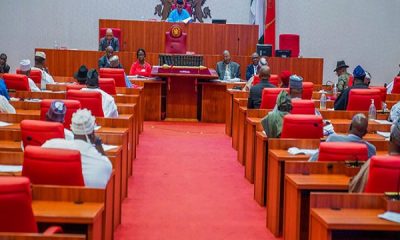
 News4 hours ago
News4 hours agoSenate approves death penalty for drug traffickers

